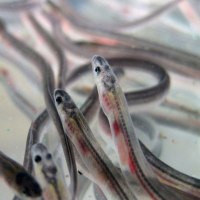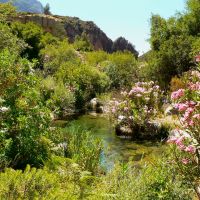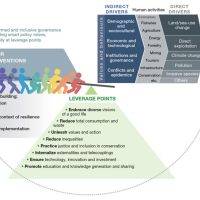Meet the MARS team: Yiannis Panagopoulos
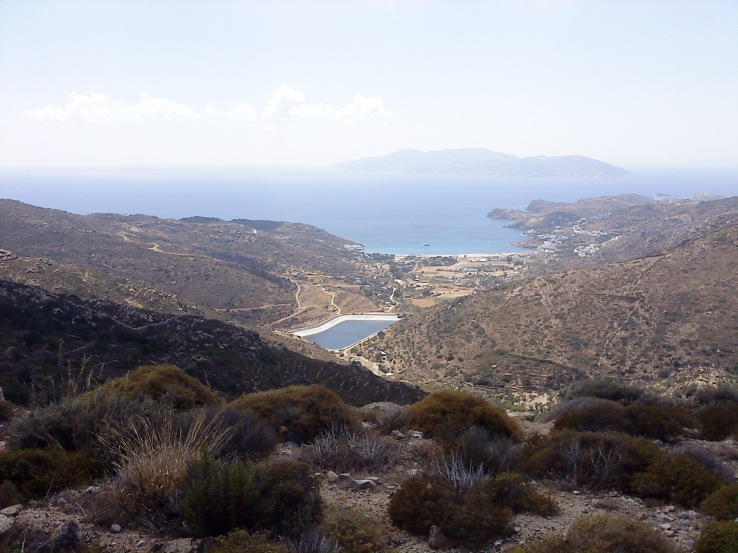
An artificial reservoir in a Greek island within the arid region of the Aegean Sea which collects and supplies drinking and irrigation water. Image: Y Panagopoulos
 We continue our ‘Meet the MARS Team‘ series this week with an interview with Yiannis Panagopoulos, a hydrologist and senior researcher at the Center for Hydrology and Informatics at the National Technical University of Athens, Greece.
We continue our ‘Meet the MARS Team‘ series this week with an interview with Yiannis Panagopoulos, a hydrologist and senior researcher at the Center for Hydrology and Informatics at the National Technical University of Athens, Greece.
Yiannis works in the fields of hydrology, water quality and water resources management. His doctoral thesis work focused on Non-Point Source Surface Water Pollution and River Basin Management, a theme which has been continued in his subsequent research in Greece and the USA. Yiannis now has a leading role in two tasks of the MARS project, alongside other research projects and scientific activities at the National Technical University of Athens (NTUA).
You can find out more about Yiannis’s work through his CHI staff page and publication page.
1. What is your focus of your work in MARS, and why?
My work in MARS focuses on various freshwater issues across two different spatial scales: I lead Task 4.2 “Multiple stressors at the river basin scale – Southern River Basins’’; and co-lead Task 5.1 “Multiple stressors at the European scale – European Matrix of Stress and Impact’’.
Together with Professor Maria Mimikou and the biologist Kostas Stefanidis at NTUA, we will also be involved in all the tasks of Work Package 6: “Synthesis: stressors, scenarios and water management” and in Task 7.4 ‘Scenario analysis tools at the European scale’.
In addition, our team contributes to Tasks 2.3 ‘Identification of Benchmark Indicators’ and 2.6 ‘Definition of Future Scenarios’, the results of which will provide guidance to the work of our leading tasks, all of which will feed into the MARS’s dissemination and policy activities, where we are also involved.
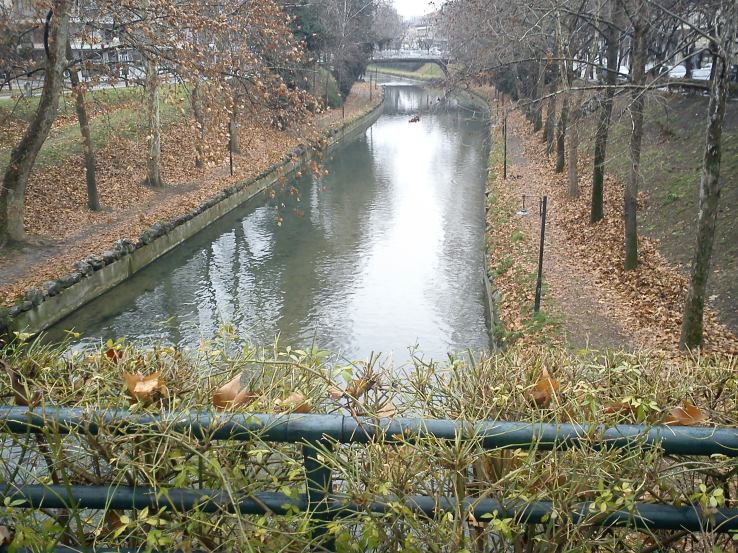
‘Litheos’ river, a tributary of Pinios, traveling through a city in central Greece. Image: Y Panagopoulos
2. Why is your work important?
Our work in MARS is important as it contributes to the targets and principles of the Water Framework Directive. The multi-stressor analysis at the river basin scale will demonstrate how the combination of individual pressures impacts on water status and how a complicated environmental situation can be managed by scientists, stakeholders and authorities within a clearly oriented area. In this case, we focus on the river basin, which is the official spatial scale for research and management of water resources according to the Water Framework Directive.
In this task we focus on Southern Europe – where water scarcity can be acute – to highlight the importance of sustainable agricultural water use along with the effects that agriculture can have on water quality and ecosystem health. As coordinators of the Pinios river basin – the most intensely irrigated basin in Greece – we seek to produce significant knowledge on new water management approaches to be considered for adoption in the next round of the WFD in 2015.
Moreover, our work at the European scale (Task 5.1) will help in understanding the variation of multiple human pressures on freshwaters across large European regions and the potential value of ecosystem services in different regions. More specifically, we will provide methods on how to estimate the combined effect of multiple stressors on water status across Europe and find ways to quantify their individual magnitudes (are they additive, synergistic or antagonistic) in order to be able to identify the most important ones in each particular region.
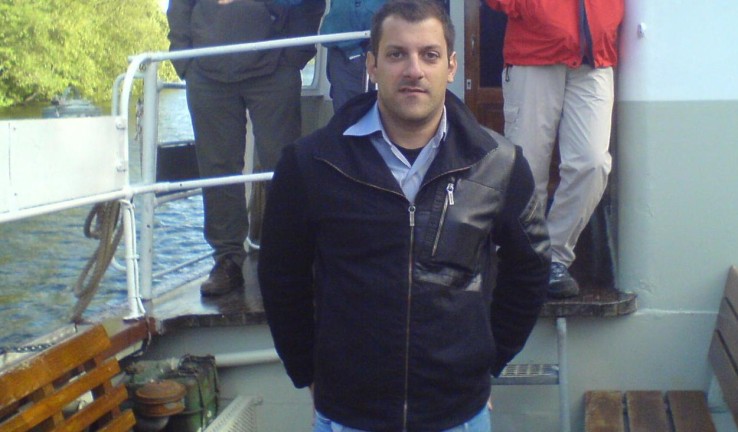
Yiannis out on fieldwork on a Danish lake.
3. What are the key challenges for freshwater management in Europe?
Overall, understanding the different pressures on freshwater ecosystems and how they combine, alongside being able to disentangle their different effects is a key challenge in freshwater management and MARS is a leading project to this direction.
As every ecosystem across Europe (whether a small pond or a large catchment) is impacted by multiple stressors, being able to identify the key factors of water and ecosystem degradation is of utmost importance in order to determine the appropriate ‘dose’ of intervention to restore or maintain ecological status.
This is in line with the principle of cost-effectiveness, which should be present in every aspect of environmental management, especially under the present economic conditions. In other words, the challenge is to manage water systems effectively, but not expensively, and in order to achieve that we need to maximize our scientific and research efforts on multi-stressors and ecosystem services.
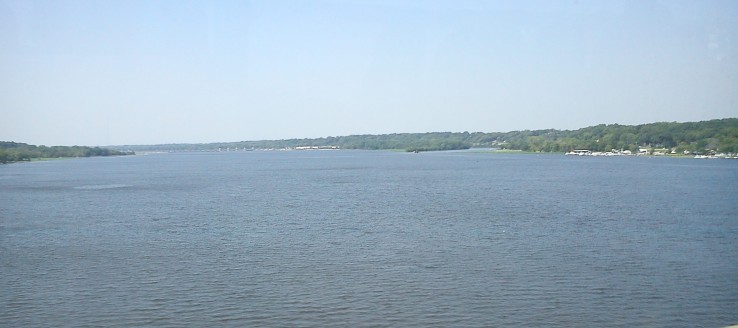
The Mississippi River. Image: Y Panagopoulos
4. Tell us about a memorable experience in your career.
A recent and great experience in my career comes from my stay in the ‘Corn Belt Region’ of Midwestern US, the most important agricultural economy of the country. Agricultural activities are responsible for water degradation across a large number of states in the region and hypoxia (a lack of dissolved oxygen in water) in the Gulf of Mexico due to pollutant release to the Mississippi river and its tributaries.
The drainage area of the Mississippi basin covers a large area of the southern USA and may equal the entire area of Europe. What is impressive is how all states across such a huge area exchange knowledge, experience and technology to coordinate an effective program of measures to restore ecosystem health under the US Environmental Protection Agency’s guidance.
After experiencing that, I have started drawing parallels with the cross-boundary European freshwater situation, as I believe strongly in wide cooperation initiatives, even in the complementarity between such large efforts around the globe.
5. What inspired you to become a scientist?
My interest in the environment, and especially water resources, was the key factor for following a scientific career in this field. Although I grew up in a big city, I was always concerned about water and when I studied agricultural engineering this feeling became much stronger.
6. What are your plans and ambitions for your future scientific work?
There is still lots to learn about the rather obscure concepts of freshwater stressors, multi-stressor effects and ecosystem functions and services, but putting all these into practice is a great challenge. I hope that at the end of the MARS project I will be in the position to say that as a member of a great team I contributed to the production of useful findings for the improvement and better implementation of the water legislation in Europe.







